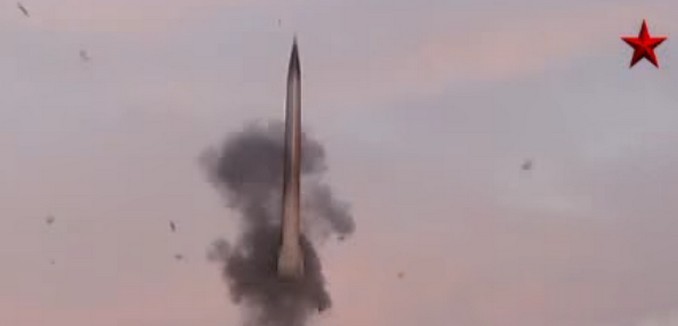In a step that will weaken United Nations-mandated sanctions that were enacted in response to Iran’s illicit nuclear program, the Russian government has lifted a 2010 ban on shipping an advanced air-defense system to Iran, The Wall Street Journal reported (Google link) today. The lifting of the ban also raised fears that Iran could deploy the missiles to protect its nuclear sites from an American or Israeli air strike.
The Kremlin posted a decree by President Vladimir Putin on its website Monday afternoon that formally removed the Russian ban. The move comes as world powers including the U.S. and Russia scramble to strike a final deal with Iran over the dismantlement of its nuclear program by a June 30 deadline.
Russia signed a contract worth hundreds of millions of dollars to deliver S-300s to Iran in 2007. But the U.S. and Israel pushed the Kremlin to drop the deal, worrying that Tehran could use the sophisticated air-defense system to protect its nuclear facilities from an attack.
Russia relented, and in 2010, Russian President Dmitry Medvedev issued a Kremlin decree prohibiting the delivery of any Russian S-300 missiles to Iran. The 2010 order brought Russia in line with United Nations Security Council sanctions passed that year, which established an arms embargo on Iran in an attempt to further impede the country’s nuclear enrichment.
UN Security Council Resolution 1929, issued in 2010, prohibits the “transfer to Iran of any … missiles and related systems or parts,” though the resolution contains a loophole allowing the sale of ground-to-air defensive missiles. Putin’s decree is titled “Amendment to Executive Order on measures for implementing UN Security Council Resolution No. 1929.”
While the issue of sanctions relief in the context of Iran’s nuclear program usually refers to economic sanctions, the international sanction regime potentially undermined by Russia’s actions are aimed at reining in Iran’s related military ambitions, which have been destabilizing the Middle East. Many observers, including House Foreign Affairs Committee chairman Rep. Ed Royce (R-Calif.), argue that the relaxed economic sanctions that accompanied the current nuclear talks with Iran has fueled Iran’s regional ambitions. Former Secretaries of State Henry Kissinger and George Shultz warned last week that further weakening sanctions will only increase Iran’s designs on the region. Despite President Barack Obama’s assurance that sanctions, once removed or scaled back, can be “snapped back” into place after Iranian violations, the process to restore sanctions “may prove unworkable.”
[Photo: vexed123 / YouTube ]




